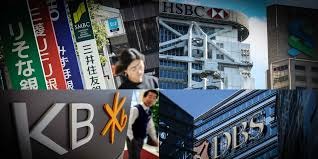Asia-Pacific banks are exposed to increased risks as the current global tariff war escalates, says Fitch Ratings' latest report. The new broad tariffs announced by the U.S.—wider and harsher than expected—will likely affect trade-reliant economies in the region, with Vietnam, Taiwan, and Thailand leading the list of exposed ones. As trade flows decline and supply chains are disrupted, the outlook for various APAC banking sectors has become more guarded.
Credit Conditions Under Pressure: The tariff shock is undermining economic growth and business sentiment, leading banks to prepare for increased credit losses and possible profit squeezes. Export-oriented industries such as electronics, textiles, and autos are particularly exposed, subjecting banks with high exposure to these sectors to pressure.
Volatility and Risk Aversion: Increasing risk aversion and capital market volatility might increase financing conditions, making it more difficult for firms and households to obtain credit. Banks could react by increasing lending standards and risk premiums, further limiting capital flows.
Uneven Effect: While trade-dependent smaller economies will likely bear the brunt, big and more domestically oriented markets like China, India, and Indonesia should experience a relatively softer impact. All APAC banks, however, are haunted by lower net interest margins and increased refinancing risks as global debt comes due.
Policy Uncertainty: As governments contemplate fiscal stimulus and central banks debate rate cuts, the region's financial system is geared up for more shocks and possible defaults.
Fitch's outlook highlights the importance of caution as the APAC banking industry rides through a turbulent international trading landscape.
Source: MarketScreener, TradingView, S&P Global

